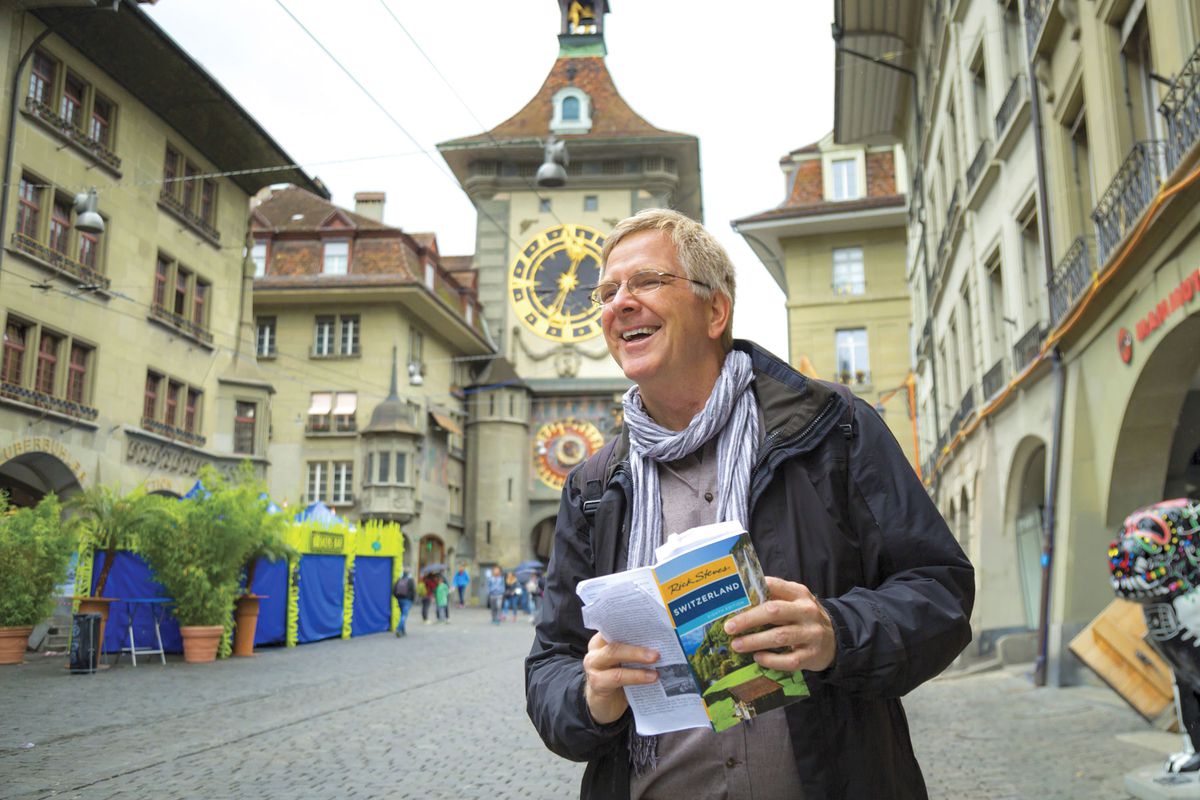
Rick Steves wants you to know that travel will make a comeback, it just might look a little different than you remember.
In April, Steves sat down for a wide-ranging interview about the future of travel with Fund for Education Abroad, an organization that provides scholarships and ongoing support to students who are underrepresented among the U.S. study abroad population. And, as you may suspect, Steves is just as ready as the rest of us to get back out there and explore the world again.
"It's been quite an adjustment," Steves said of his time off from travel. But still, he's made the most of it. Calling it a "forced layover," Steves said he used this year to keep his "traveler mindset" and try new things, which for Steves included walking his dog and getting to know his neighbors.
With one vaccine down and one more to go, Steves is gearing up for his own return to travel but noted he has plenty of work ahead of him. Here's what he had to say about his future travels and yours.
You may not be able to rely on old guide books.
According to Steves, his first order of business when he returns to work is to sit down with his research team and comb through his current guidebooks to see what's out of date.
"I don't know what the damage is going to be from a year and a half of no business," he said, referring to the many shops and vendors he suggests and how they fared over the pandemic.
"A friend of mine runs a museum in Arkansas. He figures a good percentage of museums who have had to close will not reopen," Steves said. "That's my biggest worry…all the little mom-and-pops. These are the charming entrepreneurial ventures that make traveling fun. It's my hope that they'll still be here once this is over."
If you do plan to travel soon, double-check all your points of interest are indeed still open or exist at all.
Your favorite small shops need your help.
If your favorite places or smaller businesses you'd like to visit did make it through the past year, now's the time to not only visit but to spend where you can as well. "It matters where we spend our money," Steves says, and he suggests investing as much as possible into independently owned shops.
Airports may look a little bit different.
When asked about how travel may look different in a post-pandemic world, Steves said he believes it really won't change all that dramatically, considering how many changes came about after 9/11.
"In this new reality, an airport is still an airport," Steves said, noting the only potential changes may be an increase in sanitization and continued social distancing.
And, when asked about the potential of vaccine passports, Steves shared he sees it as nothing but a good thing, and a simple expansion of "The Yellow Card," or Carte Jaune medical passport already issued by the World Health Organization for entry into many countries.
"The requirements of one country are not there to protect us," Steves added. "Those requirements are there to protect their people from us."
It’s more important to travel now than ever before, just make sure to keep it ethical.
According to Steves, "travel gives you more colors on your palette when you paint the story of your life." If that insight doesn't make you want to book a ticket right now, nothing will. However, when they do get back out there, Steves also wants travelers to think more critically about how their travels affect the world and pay their dues through carbon offsets.
"I made too much money, because nobody made me pay for the carbon. So, I gave myself a carbon tax of $30 per person. We invested $1 million in 10 different organizations in the developing world helping farmers employ climate-smart agricultural practices and organizations that are helping with reforestation and protecting forests," Steves said in his chat. "By investing in those organizations, we offset all the carbon it took to take 30,000 travelers to Europe and back. And the consumer gets the good feeling of knowing they went to Europe, at least as far as the flights are concerned, carbon-neutral. There's nothing heroic on my part for doing this, it's just ethical."
Source: Read Full Article










